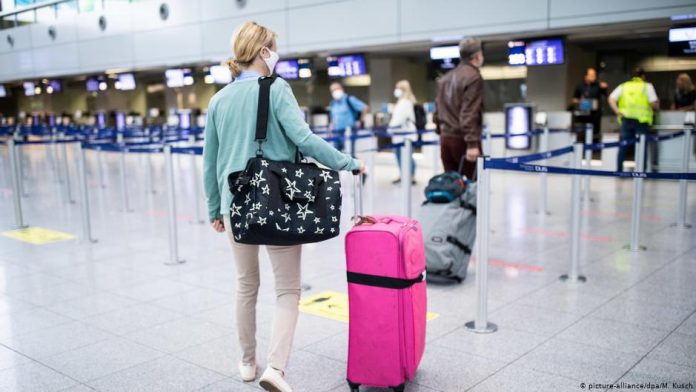As controversy swirls about new federal requirements that international air travellers spend a mandatory three days in a government-designated hotel, it seems most arrivals in Canada will still not have to quarantine at all.
A long list of exemptions to the previous isolation order — from truck drivers to fishing crews and essential health workers — will remain in force, said Tammy Jarbeau, a Public Health Agency of Canada spokeswoman.
“The rules that were in place still stand, there are no changes,” she said Tuesday.
Border restrictions imposed in late March of last year have curbed travel into this country by about 90 per cent.
But there were still 8.6 million arrivals total (land and air) between then and the end of January 2021, and 74 per cent of them — about 6.2 million — were exempt from the previous requirement to isolate at home for 14 days, according to Canada Border Services Agency (CBSA) statistics.
More than four million were truck drivers who helped keep the crucial Canada-U.S. supply chain operational, and many were people who live on one side of the border and work on the other, crossing daily, says the CBSA.
A federal cabinet order includes about 20 other exemption categories, people who will now be able to avoid the new three-day hotel stay — and its $2,000-per-person price tag as well.
The exclusions underline the complexity of trying to seal Canada off from the rest of the world, especially when it shares earth’s longest undefended border — and a massive trading relationship — with the United States.
But they’re frequently minimized by the government, which often refers to the quarantine exemptions as “limited,” even though they apply to most people who enter Canada.
The newest travel restrictions were imposed to try to stem the flow into Canada of new, more-contagious variants of the virus that causes COVID-19.
The National Post first asked the Public Health Agency on Feb. 1 for data on the number of coronavirus cases identified among international travellers exempted from quarantine versus the minority actually required to isolate. The agency had yet to provide that information by deadline Tuesday.
Dr. Jeff Kwong, a University of Toronto public health professor, said he simply doesn’t know how much of a problem the exempted travellers pose.
But even if it’s impractical to force them to quarantine, it would likely make sense to use some of the 38 million rapid COVID tests obtained by the federal government to screen truck drivers and others, he said.
“Why aren’t we doing testing of them every time they cross into Canada?” asked Kwong. “Every time they cross into (Canada), maybe they could get a rapid test. Then they’d know if they are safe to go home to their families.”
According to the CBSA, three quarters of the quarantine-exempt travellers entering by land have a “critical role” in the trade and transportation sector. Another 18 per cent of the exempt people at land crossings must cross the border to go to work. And the rest fall under one of the other exemptions.
Those range from members of Canadian and foreign military on official duty, certain health-care workers, people who provide an essential service, some international students and Canadians studying in the U.S. as they return home.
There is even an exemption for residents of the remote communities of Northwest Angle, Minn. and Hyder, Alaska, who have to enter Canada to get essential supplies. People in Campobello Island, N.B., and Stewart, B.C., who need to cross into the U.S. for the same reason are also exempt.
More than 90 per cent of those arriving by air must go into quarantine. Just under one in 10 air travellers qualify for an exemption, largely air crew and others in the trade and transport industries, according to CBSA.
The quarantine rules and their exceptions pose a major challenge for companies in the U.S. and Europe who need to send employees to Canada to perform maintenance and other urgent tasks, says Sergio Karas, a Toronto immigration lawyer.
The process can be time-consuming. With non-Canadian travellers from outside the U.S. mostly barred, workers need to obtain a letter of introduction from a Canadian visa post in their region before they can enter this country. And with individual border officers making the call, there’s no guarantee even essential workers will be exempted from quarantine, he said.
“We have found inconsistency across different ports of entry,” said Karas. “We have no ability to advise them in a definite manner if they’re going to be exempt or not.”
Meanwhile, Ottawa announced Tuesday it would require people entering Canada at land borders to obtain a negative COVID test within 72 hours of arrival. The same requirement was imposed on air travellers earlier.
The Public Health Agency’s Jarbeau could not indicate Tuesday if that rule would apply to quarantine-exempt travellers.
“Further details on the new measures for testing and quarantine requirements, as well as the travel restrictions, will be provided in the coming days,” she said.
































